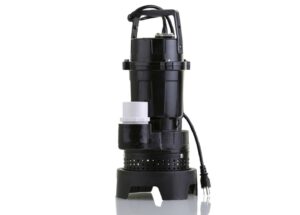
Knowing the common reasons for sump pump failure and how to prevent these issues is key to keeping your pump running when you need it most.
A sump pump is a critical piece of equipment that helps protect your home from water damage by keeping your basement dry. However, like any mechanical device, a sump pump can fail, leading to potential flooding and costly repairs. Understanding the common reasons for sump pump failure and how to prevent them can help ensure your pump functions properly when you need it most.
Power Failure
One of the most common reasons for sump pump failure is a power outage. If your home loses electricity during a heavy storm, your sump pump will stop working, leaving your basement vulnerable to flooding.
Prevention: Install a backup power source such as a battery backup system or a generator. This ensures that your sump pump remains operational even if the power goes out.
Overwhelmed Pump Capacity
If your sump pump is too small or not powerful enough to handle the volume of water entering the sump pit, it can become overwhelmed and fail to remove water effectively.
Prevention: Choose a sump pump with the appropriate horsepower and capacity for your basement size and the typical water flow in your area. Consulting a professional can help determine the right pump for your needs.
Stuck or Faulty Float Switch
The float switch is responsible for turning the sump pump on and off as water levels rise and fall. If the switch becomes stuck or malfunctions, the pump may not activate when needed.
Prevention: Regularly inspect the float switch and ensure it moves freely. Keeping the sump pit clean and free from debris can prevent obstructions that interfere with the switch.
Clogged Discharge Pipe
A clogged discharge pipe can prevent water from being properly expelled from your home, causing the sump pump to work harder and eventually fail.
Prevention: Install a grated cover over the discharge pipe to keep debris out. Periodically check the pipe for clogs and clear any obstructions.
Lack of Maintenance
Like any other appliance, a sump pump requires regular maintenance to function efficiently. Neglecting routine inspections and cleaning can lead to unexpected failures.
Prevention: Test your sump pump at least once a season by pouring water into the sump pit and ensuring it activates properly. Clean the pump, pit, and discharge line regularly to remove dirt and debris.
Old or Worn-Out Pump
Sump pumps have a lifespan of around 7-10 years. Over time, wear and tear can reduce efficiency and eventually lead to failure.
Prevention: Keep track of your pump’s age and replace it before it reaches the end of its expected lifespan. If your pump runs frequently, consider replacing it sooner to avoid unexpected breakdowns.
Frozen or Blocked Discharge Line
During colder months, the discharge line can freeze, preventing water from flowing out and causing backups.
Prevention: Insulate the discharge line or install a sump pump discharge line protector to prevent freezing. Ensure that the pipe has a proper slope to facilitate water flow.
Call Mahon Plumbing Today
If you still have more questions regarding your plumbing, we here at Mahon Plumbing are here to help. We have been serving the wider Baltimore area since 1994, so we have 25 years of experience to back up our fantastic service! Call us at our Baltimore location at 410-766-8566 or our Pasadena location at 410-636-7944. Be sure to keep up with us on social media by following us on Facebook or Twitter.
